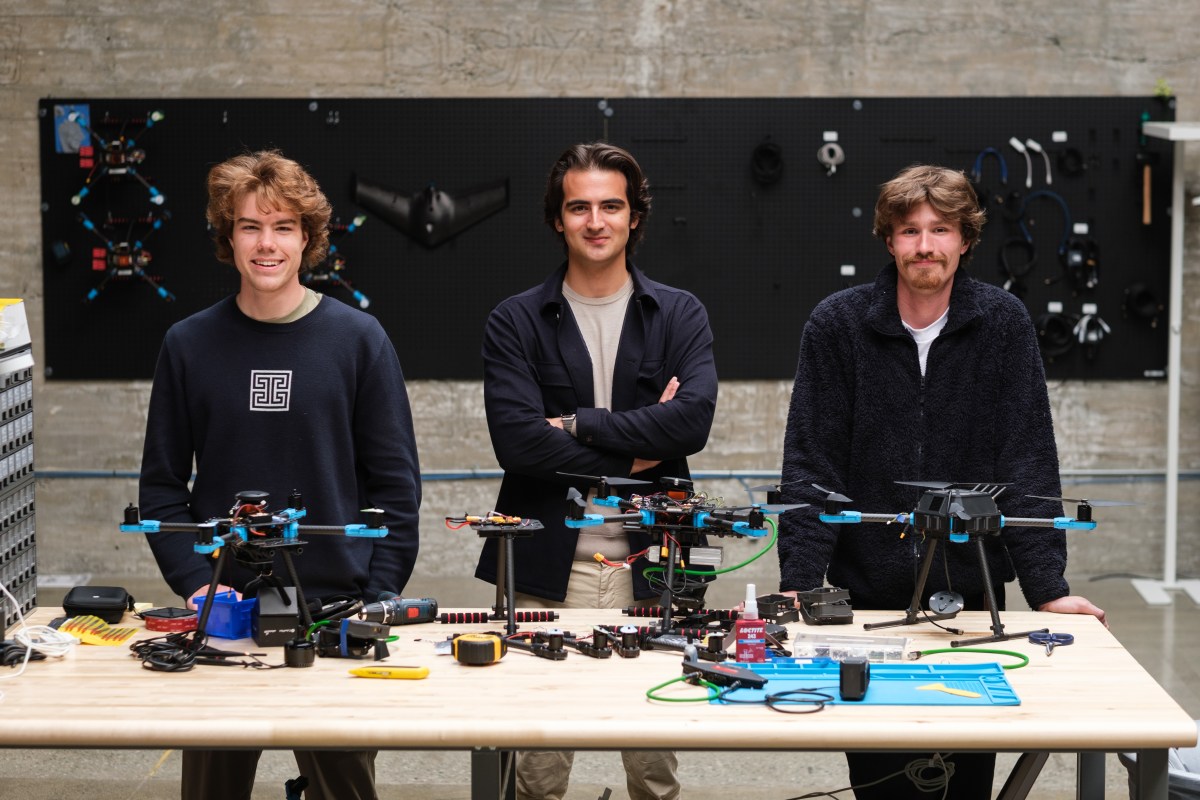On February 18, 2024, Ian Laffey posted on X that he and two others he’d simply met constructed an inexpensive drone at a hackathon that calculated its coordinates just by utilizing its digicam and Google Maps. He and his colleagues, Sacha Lévy and Carl Schoeller, had been all engineers underneath the age of 25.
The tech had clear potential to fight rampant GPS jamming of drones in Ukraine. As a substitute of GPS, drone operators there have to make use of high-tech goggles to information their drones by sight. However that results in plenty of issues, particularly underneath poor situations like thick fog or at night time.
On the finish of the hackathon, Schoeller wished his two teammates properly and parted, hoping their paths may cross once more.
However the tweet went viral and altered their lives. A day later, the three determined to use to Y Combinator, efficiently stepping into its Spring 2024 cohort.
Now, their San Francisco-based firm, Theseus, has simply raised $4.3 million in seed funding in a spherical led by First Spherical Capital, with further backing from Y Combinator and Lux Capital, it completely instructed TechCrunch.
Theseus joins a flock of different drone-related startups. There’s Skydio, which focuses on changing Chinese language drones for U.S. regulation enforcement and was last valued at $2.2 billion in 2023. Protect AI, which builds reconnaissance drones, lately raised at a $5.3 billion valuation. The largest protection tech participant, Anduril, launched its personal small drone final 12 months, and is reportedly in talks to raise at a $28 billion valuation.

Theseus says it doesn’t construct drones, however focuses on the {hardware} parts and software program that may allow just about any army drone to fly unmanned with out GPS. Schoeller, Theseus’ CEO, instructed TechCrunch the corporate doesn’t construct focusing on programs. Its software program shouldn’t be deciding whether or not a sure spot is a professional army goal or not — the only focus is getting a drone from level A to B.
Theseus hasn’t received any U.S. army offers but, and hasn’t been deployed in an precise battlefield. So it’s utilizing its contemporary capital to deal with additional constructing out its tech, hiring for 3 engineering roles.
Nonetheless, the viral hackathon tweet did get Theseus seen by U.S. Particular Forces, which has entered into an settlement for early testing and improvement. Theseus says it lately went to a secret Particular Forces base to check out its newest system, sending TechCrunch a photograph of it in motion.
General, beginning an organization with folks you’ve recognized for underneath every week “typically isn’t suggested,” however in Theseus’ case, it warranted the leap of religion, Schoeller wrote on LinkedIn.

